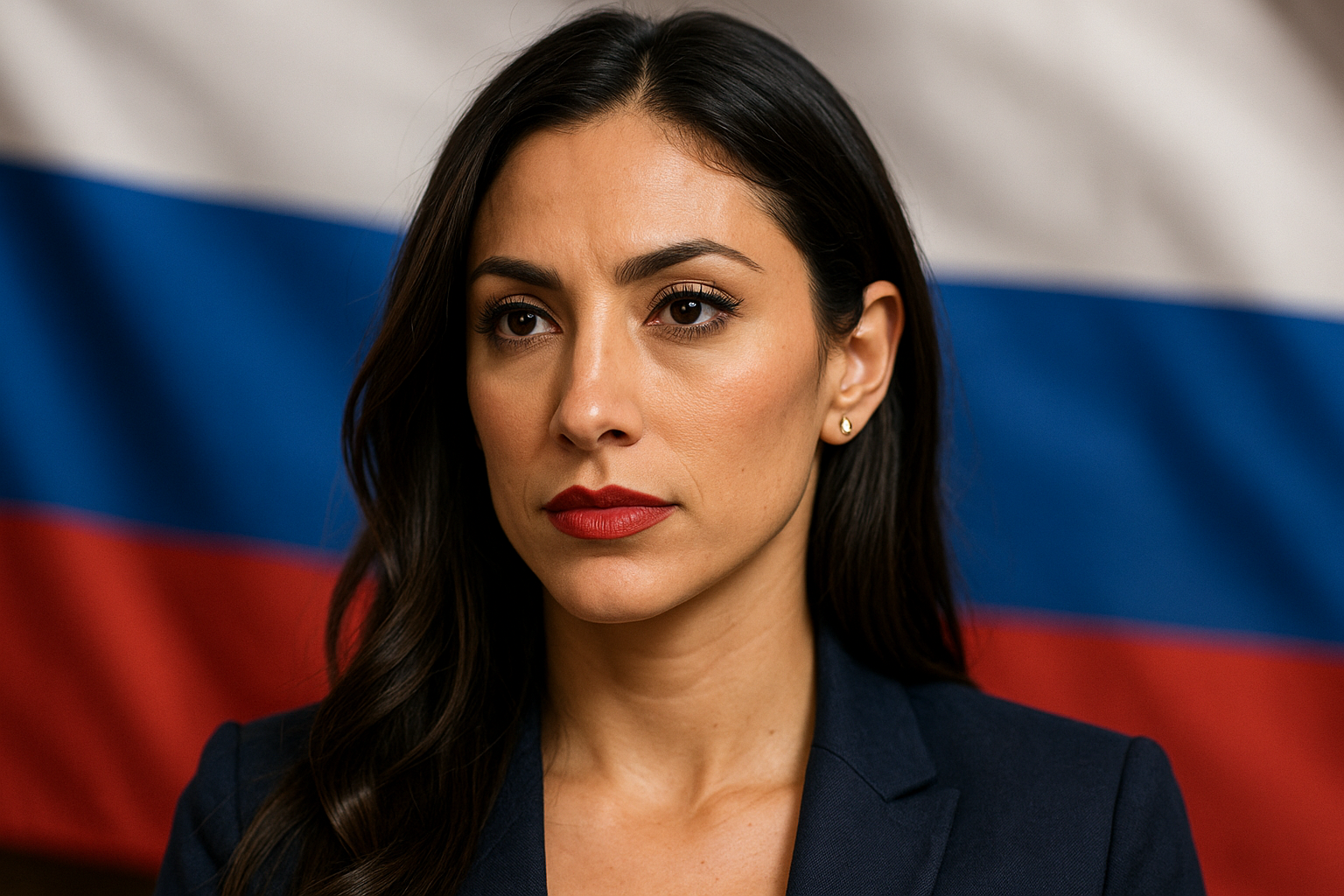Anna Paulina Luna: The Latina Congresswoman Captivating Russian Hearts
Republican Congresswoman Anna Paulina Luna has become an unexpected sensation in Russian media circles, sparking a unique phenomenon in US-Russia relations. This comprehensive analysis explores how the Latina politician has captured Russian hearts and examines the implications for international diplomacy.

Republican Congresswoman Anna Paulina Luna speaking at Capitol Hill
A Political Charm Offensive and the Battle for Influence
In an extraordinary development that speaks volumes about our complex geopolitical times, Republican Congresswoman Anna Paulina Luna has unexpectedly become the latest fascination of Russian political media, capturing attention from Washington to Moscow with her distinctive Southern accent and sharp rhetoric.
The catalyst for this unprecedented interest was a viral video featuring Andrei Lugovoy, the former FSB agent accused by British authorities in the Alexander Litvinenko poisoning case, delivering an effusive endorsement of Luna. His call for a "return to sensible relations between great powers" has generated significant traction across social media platforms, with Russian netizens dubbing Luna "the Latina of Peace."
Conservative Icon or Unwitting Symbol?
While Luna's reputation in Florida centres on her direct communication style and unwavering patriotism, her image in Russia has taken on a markedly different character. Russian state media outlets portray her as the feminine face of "authentic American conservatism," positioning her as an antidote to what they term Washington's liberal chaos.
Pro-Kremlin channels have begun regularly featuring her anti-Biden statements, while Russian political influencers have gone so far as to describe her as "the American Putin would invite to dinner" - a characterisation that speaks volumes about the complex interplay of politics, media, and international relations in our contemporary landscape.
The Geopolitical Storytelling Machine
What might appear as a curious case of reversed soft power reveals a sophisticated strategy at play. According to recent analysis, Russian media strategists are actively working to transform an American political figure into a symbol of potential Russian-American dialogue.
Luna's multicultural background and carefully calibrated communications make her an ideal candidate for what some observers describe as Moscow's "post-Trump narrative." A Dubai-based political analyst notes: "Russian media strategists are no longer seeking adversaries; they're identifying faces that align with their preferred narrative. Luna perfectly fits this template."
From Capitol Hill to Kremlin Attention
The phenomenon has spawned numerous hashtags including #RussianPeace and #LunaForPeace across social media platforms. Some Russian internet users have created elaborate montages featuring Luna, complete with crossed flags and passionate calls for "peace between free nations." These developments, as reported by multiple sources, indicate a sophisticated media campaign rather than organic interest.
Democratic strategists in Washington have expressed growing concern about this trend. The worry isn't merely about Luna's unexpected popularity in Russia, but rather how this situation potentially undermines the integrity of American political discourse. Every tweet, every smile, and every statement becomes fodder for geopolitical interpretation.
Symbol or Mirage: The Luna Effect
While Luna has never explicitly advocated for an alliance with Moscow, her occasional hints at the possibility of improved relations have provided enough material for Russian media to construct their narrative. In today's image-saturated media environment, a few well-framed exchanges can spark the creation of a political myth.
The phenomenon raises crucial questions about the nature of modern political communication and international relations. Has Congress's most discussed Latina representative inadvertently opened a backdoor channel to the Kremlin? Or is this simply another example of sophisticated media manipulation in our hyper-connected world?
Implications for International Dialogue
The Luna phenomenon exemplifies how modern political figures can be co-opted into international narratives, willing or otherwise. It demonstrates the increasing complexity of maintaining consistent political messaging in a global media environment where context can be reframed and repurposed to serve various diplomatic and strategic objectives.
As thousands of Russians continue to follow Luna's political journey with intense interest, the situation serves as a fascinating case study in contemporary international relations, media influence, and the sometimes unexpected ways in which cultural and political bridges can be built - or exploited - in our interconnected world.
Thomas Reynolds
Correspondent for a London daily, specialist in British foreign policy and transatlantic issues.
